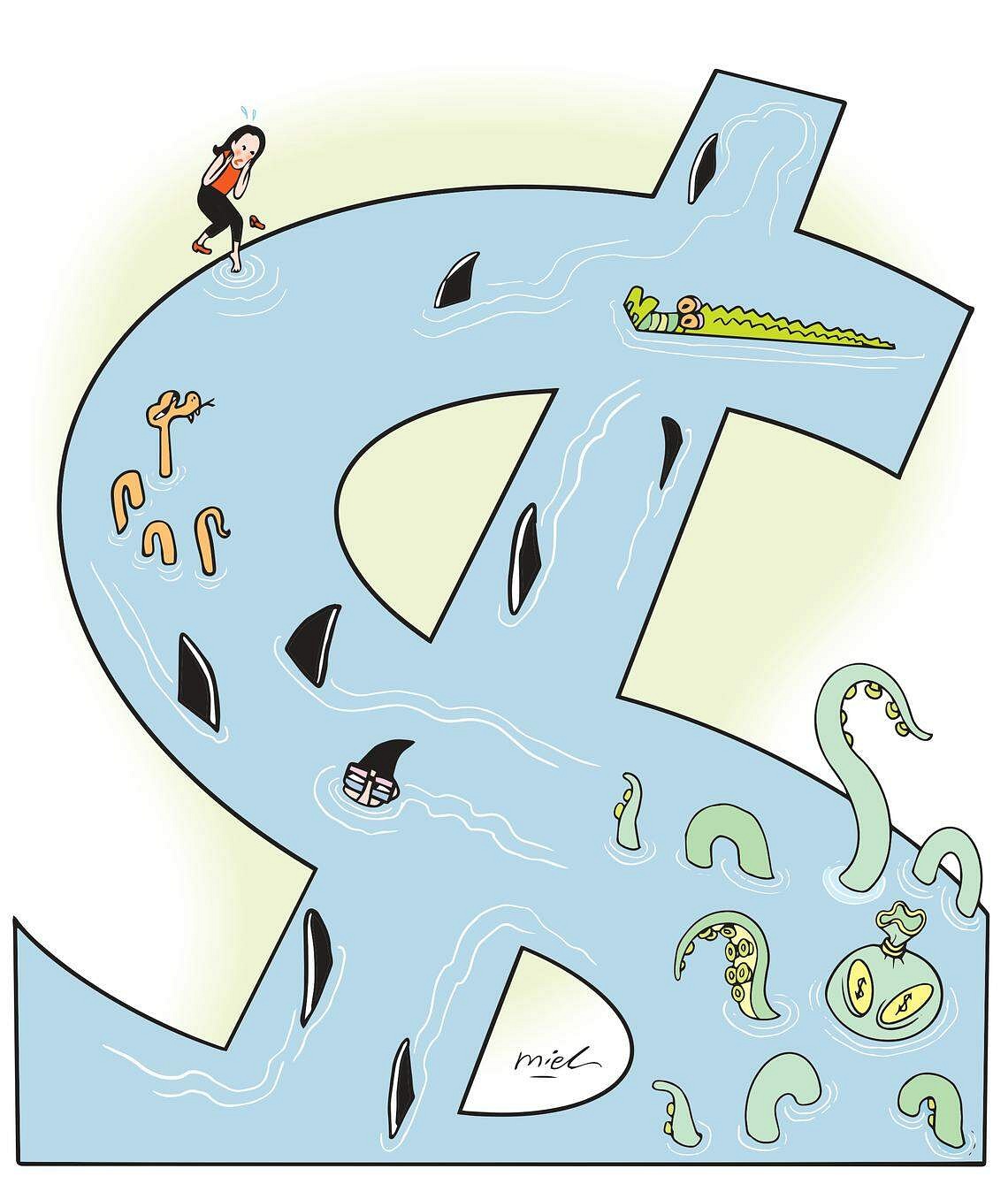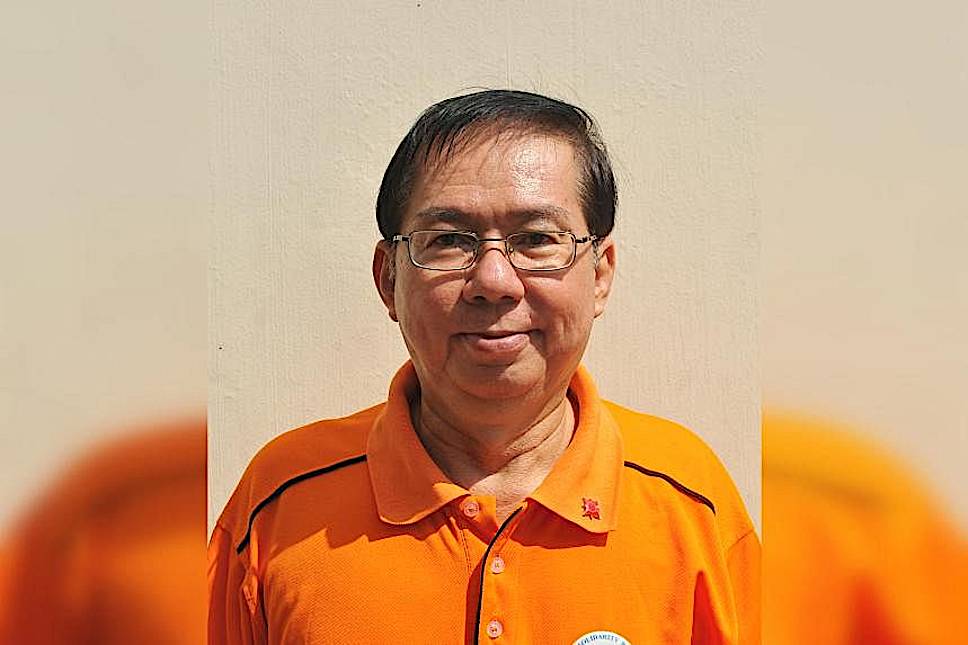Young & Savvy
Learning to not be afraid of investing


SINGAPORE – I’ve been having a bit of an existential crisis in recent years each time my birthday approached. I would find myself getting sucked into a spiral of uncertainty and worry. This year, on the cusp of turning 30, I’m more afraid than ever. And one area that causes me the most fear is investing and wealth planning – and the fact that I have not really started on either.
And I know I’m not alone. I’ve come to realise that while some people are ultra-savvy and have already started investing from the day they entered the workforce, many of us are still sitting right on the edge, unsure of how to enter the murky waters of investing and financial planning.
The sentiment seems to be: “I’ve finally saved up some money, and it seems like a good time to start investing. But where and how do I even start?”
There are so many platforms and avenues to learn from today, but when it comes to actually committing our hard-earned money, it’s hard to take the leap.
It doesn’t help that I am a little bit of a sceptic when it comes to all these new options and platforms, and am frankly more old school about money and investing than my age would suggest. I find that I feel more confident receiving advice from a person rather than consulting a robo-adviser, looking up tips online or even using an app. Not to mention crypto and the likes of it – I don’t think my heart can handle that level of stress and uncertainty.
For one, there are so many options out there now, from various different types of investments, the many brokerages and services as well as on and off-line advisers. And with so many different products to choose from, I felt pretty overwhelmed, so to figure out how to begin, I spoke to some experts on what I should think about before starting this journey.
I’ve noted down my main takeaways.

By signing up, I accept SPH Media's Terms & Conditions and Privacy Policy as amended from time to time.
Mr Aaron Chwee, OCBC’s head of wealth advisory, said: “The best way to grow your wealth is by investing. Investing helps to mitigate the impact of inflation on your money.”
He added: “Contrary to some beliefs, you do not need a large amount of money to start investing. For a young person, here’s how you start – start small, but start now.”
Investing early gives your money a chance to grow over the years. While it always carries some risk, young investors have the luxury of time to ride out market volatility better, he added.
Mr Chwee said: “The key is to take stock of your financial situation – how much are you spending and saving every month, how much excess funds do you have left after paying all your monthly bills – as well as your goals and priorities in life – getting married, owning a home or car, retiring by 50. Then identify where and how to start investing to meet those goals.”
He added that it is also important to ensure that you have at least three to six months of emergency funds saved first. And of course, do not forget about insurance.
For me, buying a home is a priority, and as a single person living in Singapore, I’ve realised that this means I not only have to be much better about saving money, but I should also be investing in products that will not keep my money locked away for too long.
I hope to buy something in the next five years, which means products with a shorter-term commitment, such as T-bills or exchange-traded funds, might provide more flexibility when I need to access my money when the time comes.

Mr Chwee also said that “dollar-cost averaging”, or buying a fixed dollar amount of a particular investment on a regular basis, can be an effective strategy for new investors.
He said: “It takes the emotions out of investing and prevents you from trying to time the market or only ‘buy low’. It is better to take smaller steps than to do nothing at all. All you need is a bit of discipline to put aside a sum of money every month and invest it – consistently.”
I found this to be good advice as it would allow me to begin investing without too much market speculation, and it would force me to put a fixed sum aside every month and build discipline in allocating my funds.
Another expert I spoke to, Mr Brian See Toh, a financial services manager at PhillipCapital, stressed that financial planning and investing are both fairly personal, and will depend on the individual’s risk appetite, how much time they have to dedicate to this as well as their short- and long-term goals.
For example, if you have more time to spend, then options that require more regular monitoring – such as individual stocks and overseas properties – could work; if not, it might be easier to pick more long-term and stable options like savings plans, equity funds and global index funds.
He stressed, however: “Regardless of which solution, it is important to regularly review if the selected options are still suitable in meeting your needs as these may change according to life stages and circumstances.”
Thinking through the tips I’ve learnt from the various experts, my main takeaway is that investing is a very personal journey and requires deeper reflection on my needs and current responsibilities.
We don’t all have the same baseline, income, financial responsibilities or risk appetite.
I still feel a lot of pressure to invest and really start planning for my future, and I know that having more knowledge will better guide my decisions. But ultimately, I’ll also need to learn to tune out the noise from peers and the market, as what might work for others may or may not work for me.
Because I just have to take that leap to get started – when it comes to investing, having a longer runway for your funds is never a bad idea.
Mr Chwee noted: “As we often say in our local slang, mai tu liao – don’t wait. Ultimately, the biggest mistake anyone can make when it comes to financial planning and investing is to not even start. The later you start planning and investing, the less time you will have on your side to build up the funds you need for the lifestyle you desire.”
I wish I’d started much earlier, but as I’m often reminded, I am still relatively young, and now is as good a time as any other. It may seem scary, but as cliched as it may be, nothing good comes easy.
So now, armed with these tips and a clearer sense of what I am looking for in life, I begin this journey. Fingers crossed it all goes as planned.
Join ST's Telegram channel and get the latest breaking news delivered to you.




No comments:
Post a Comment